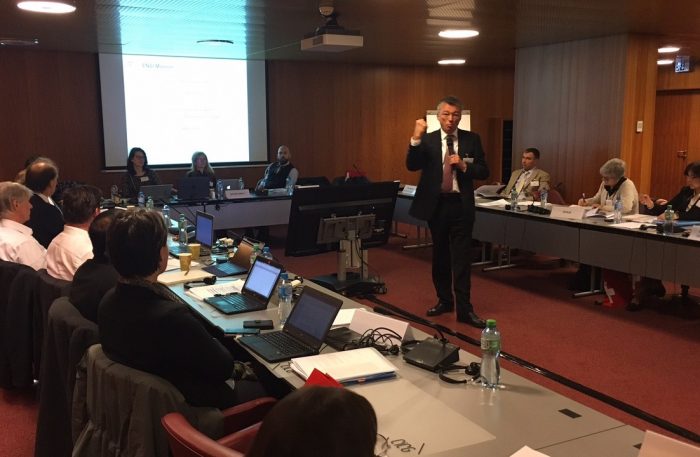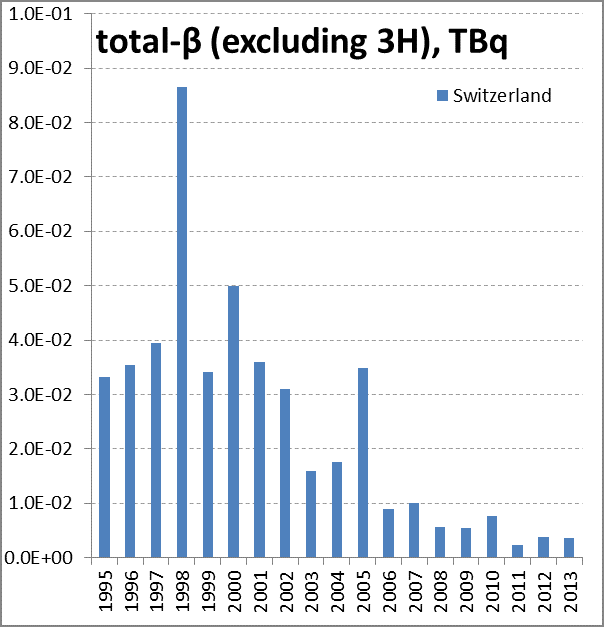The discharge of radioactive substances into the North Sea and the Atlantic has been reduced successfully in the past few years

The meeting of the Radioactive Substances Committee (RSC) is taking place in Geneva until Thursday. The aim of the RSC is that the Contracting Parties to the OSPAR Convention on the protection of the Marine Environment of the North-East Atlantic have to reduce the release of radioactive materials by 2020 so that they are no longer detectable (close to zero) in samples taken from the North Sea and the North-East Atlantic. This year’s meeting is organised by the Federal Office for the Environment FOEN and the Swiss Federal Nuclear Safety Inspectorate (ENSI).
The RSC is part of the OSPAR Convention on the protection of the Marine Environment of the North-East Atlantic. Since joining OSPAR, Switzerland has significantly reduced liquid discharges of radioactive substances (excluding tritium) from its nuclear power plants into the river Aare, which subsequently flows into the Rhine.
For international comparison, ENSI uses the data determined by the OSPAR Commission. Derived from the OSPAR agreement ENSI prescribes the Swiss nuclear power plants with a target of one gigabecquerel per year, which must be adhered to according to a proportionality framework. Details are included in the annual reports.

The OSPAR Convention on the protection of the Marine Environment of the North-East Atlantic
The OSPAR Convention, named after the two preceding agreements, the OSLO Convention (OSCOM) of 1972 and the Paris convention (PARCOM) of 1974, was concluded in 1992 in Paris and entered into force on 25 March 1998 after ratification by all the Member States.
The Contracting Parties Switzerland, Belgium, Germany, Denmark, Finland, France, United Kingdom, Iceland, Ireland, Luxembourg, Norway, Netherlands, Portugal, Spain, Sweden and the European Union undertake that they will combat marine pollution resulting from human activities. For example, the convention prohibits the dumping and incineration of waste at sea.
The RSC meets every year to exchange information on adherence to the strategy and releases over the last year. As in the last few years, representatives of the 16 Contracting Parties will also discuss at this year’s meeting how the assessment of environmental data can be further improved. In addition, the meeting participants will in particular discuss the question of how periodic reporting could be made more efficient in the future.

